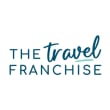How to find the best low cost franchise business in 2025
Low cost doesn’t mean low profits. In fact, a lot of the businesses in this article offer a profitable franchise opportunity and can cost from as little as an initial investment of £2,000

Image: Shutterstock/fizkes
Jump to
Lowcost travel franchise
Explorer Franchise by Hays Travel
Low cost children's franchise
Fun Fest for Children
Low cost retail franchise
Cakes & Bakes
Local Shops
Low cost online franchise
SmartPA
Low cost business franchise
Aspray Limited
Chrysalis Partners
Not all businesses come with a six-figure franchise fee. Many low cost franchise opportunities have the potential to make significant returns for individuals.
A lot of these tried-and-tested franchises can be run from home on a part-time basis, allowing the business owner to have a low start up cost and be their own boss around other commitments, such as a young family or other business investments.
What is a low cost franchise?
A low cost franchise will have an investment fee of around £500 to £10,000. It will typically have a simple operation, minimal overhead costs, and quick start up times.
Franchises that are service-based, mobile, or homebased will typically have low cost options as they are less reliant on having an office or shopfront.

What are the best low cost franchises?
The best low cost franchise for you will depend on what your goals are as a business owner. However, some sectors that commonly offer low investment rates include:
- Cleaning franchises
- Handyman franchises
- Pet care and dog walking franchises
- Tutoring franchises
- Children’s franchises
- Food trucks and kiosk franchises
- Business coaching franchises
- B2B franchises
- Vending franchises
The benefits of investing in a low cost franchise
A low cost franchise model can be appealing to first-time entrepreneurs, especially as the business model provides a solid blueprint. Here are some of the biggest advantages of choosing a low cost brand:
- Affordability: these opportunities are inclusive of entrepreneurs with less capital.
- Lower risk: there’s less financial commitment for franchisees.
- Flexibility: many low cost franchises are part-time or flexible.
The disadvantages of investing in a low cost franchise
While the cost of a cheap franchise can be appealing, it’s important you consider why that is. Some industries universally have low overheads, but you may want to scrutinise why a brand in a high-cost industry may be offering a low priced franchise package. Some potential risks include:
- Low earnings: you may not have as much revenue opportunity as higher investment franchises (although there are plenty of examples where this isn’t the case).
- Financial risk: every business carries a financial risk, despite being low cost.
- Competition: greater accessibility usually means low cost franchises can be more common, which means you’ll have to work to differentiate yourself.
- Less management opportunity: you may be doing a lot of the work yourself to keep overheads low.

Franchises under £2,000
Some of the cheapest franchises under £2,000 include GoCruise (£790 total investment); LCF Clubs (£1800 total investment), What’s On In (£789 minimum investment); and Rugbytots (£500 minimum investment).
Franchises under £5,000
Franchise agreements under £5,000 include The Travel Franchise (£2,995 total investment); Coffee-Bike (minimum investment £3,500); Full of Beans Fitness and Sports Coaching (£3,000 minimum investment); Kumon (£3,000 minimum investment); MyWaggyTails (£2,499 minimum investment); and Mini First Aid (£4,500 minimum investment).
Franchises under £10,000
Franchise agreements under £10,000 include Local Shops (£8,000 minimum investment); Domestic Angels (£8,000 minimum investment); Eazi-Apps (£7,995 minimum investment); and it’seeze (£5,990 minimum investment)
You can find a full list of low cost options in the What Franchise directory.
How to buy a low cost franchise business
Research franchise brands that are currently offering low start-up fees. Check out the What Franchise directory for the full list of low cost franchise opportunities in the UK right now.
It’s important you conduct independent research into the business you wish to invest in. This includes researching the market in which the business operates, the history of the franchise, the people behind it, what you get for your money, and the competitors in the sector.
It is also advisable that you speak to as many established franchisees as possible about the business to get a first-hand account of how the franchise runs and whether their expectations have been met.
Another crucial part of your research is having any information about earnings potential scrutinised by a suitably qualified accountant.
As well as taking advice from a financial expert, it’s vital that you have the franchise agreement, which is a legally binding document, reviewed by a lawyer who is familiar with the franchise industry. There are several law firms in the UK that specialise in franchising and are members of the British Franchise Association.
You also need to ask yourself whether you are suitable to become a franchisee. Are you self-motivated, determined, ambitious, resilient, and do you have the ability to follow a proven system of doing business? If you answered yes to all of these, you have what it takes to become a successful franchisee.
Many franchisors, upon receiving an initial enquiry about their franchise, will call a prospective franchisee to get some more information about them, such as what area of the country they wish to set up in, details of their previous employment or business experience and the reasons why they want to become a franchisee.
This will be followed by, in many cases, an invitation to a discovery day, which usually takes place at a franchisor’s headquarters, where candidates can find out more about the business, meet key members of the franchisor’s management and support teams and ask any questions they may have about the opportunity.
The next stage is a series of one-to-one meetings with the franchisor, where further information (including financial details) will be disclosed to the candidate, who providing they are satisfied with all aspects of the business and it fits with their personal aspirations and the goals of the franchisor will sign a franchise agreement and commence initial training.
There are many low cost franchises that make money. The trick is to choose the right one that suits your personal circumstances and interests and partner with a franchisor with whom you can build a successful, long-term business relationship.

Low cost franchises and above-average returns
The mean total start-up cost for a new franchise unit is £56,500, 60% of franchisees turnover over more than £250,000 and 93% are profitable, according the BFA’s last research report.
However, the survey also revealed that there are no significant differences between smaller and larger businesses in terms of profitability. This means investing in a low cost restaurant franchise or a low cost locksmith franchise offers a viable opportunity for someone with limited funds who wants to start small, minimise the risk element, and build a business at their own pace.
Turn a low cost franchise into a high-value business
Low cash outlay with financial assistance
If you want to invest in a low cost burger franchise, a low cost gym franchise or a low cost travel franchise, for instance, you may not need all the required start-ups cost available in liquid funds.
This is because banks such as Lloyds, HSBC, and NatWest will consider lending prospective franchisees up to 70% of the start-up cost of an established franchise or around 50% if the franchise has only been recently launched.
This is a result of the franchise industry’s record of success in the UK, which is much higher than independent start-ups, around half of whom fail within their first five years, meaning banks see franchisees as a safer bet when it comes to lending.
Irrespective of the cost of starting a franchise, make sure you don’t start your journey as a franchisee undercapitalised, as this is one of the main reasons new businesses fail.
How to get funding for your franchise
Other costs to consider when investing in a franchise
It is not just the start-up cost you need to factor in when you’re buying cheap UK franchises. For example, the franchisor of a low cost franchise with high return, such as a low cost vending machine franchise, will typically charge a monthly management fee, which covers the cost of the ongoing support provided, and a marketing fee, which pays for the promotional activity organised by the franchisor to maintain brand awareness and drive customers to the franchisee network.
Each fee is charged as either a percentage of the franchisee’s turnover or as a fixed sum. It is important to find out how a franchisor structures these fees and what you get for each one before you make any commitment.

Questions to ask a franchisor before your initial investment
It is crucial that you have as much information as possible about the franchise you want to buy before making a commitment.
A franchisor will want you to ask questions about its business, as it shows that you are a serious investor. These are just some of the questions we recommend you ask a franchisor before you make your decision:
- How long have you been in business?
- Why did you decide to franchise your business?
- What plans do you have for the business in the short, medium and long term?
- What is the success rate of the franchise?
- What is the franchise’s unique selling proposition?
- What’s the total cost of the franchise, including franchise fee, ongoing fees and any working capital requirements?
- Will I be trading from an exclusive territory?
- What training and support will I receive during my time as a franchisee and how will this be delivered, ie online, face-to-face, one-to-one, in group sessions, etc?
- How will you help me to develop the business once it has become established?
- How long is the franchise agreement and what are the rights of renewal?
- Information about yourself, the franchise, the franchisor and the market in which it operates.
- An analysis of the strengths, weaknesses, opportunities and threats associated with the business and industry sector.
- Details of your short, medium and long-term goals for the business.
- Financial information such as profit and loss and cash flow forecasts, plus a balance sheet.
- A marketing plan.
- A summary of all the information included in your business plan.

The importance of an effective business plan
You will not only need to produce a business plan if you wish to borrow money from a bank, you will also need it as a working road map to guide you to where you want to be as a franchisee.
It should be concise, divided into sections and full of pertinent details such as:
A franchisor may offer to help you compile a business plan, but you must be able to interpret the information and understand the numbers contained within it.
Still interested in a owning your own business? You can find the latest low cost franchise opportunities in the What Franchise directory.
What Franchise Newsletter
Keep up to date with all the industry news









_110_110.jpg)
